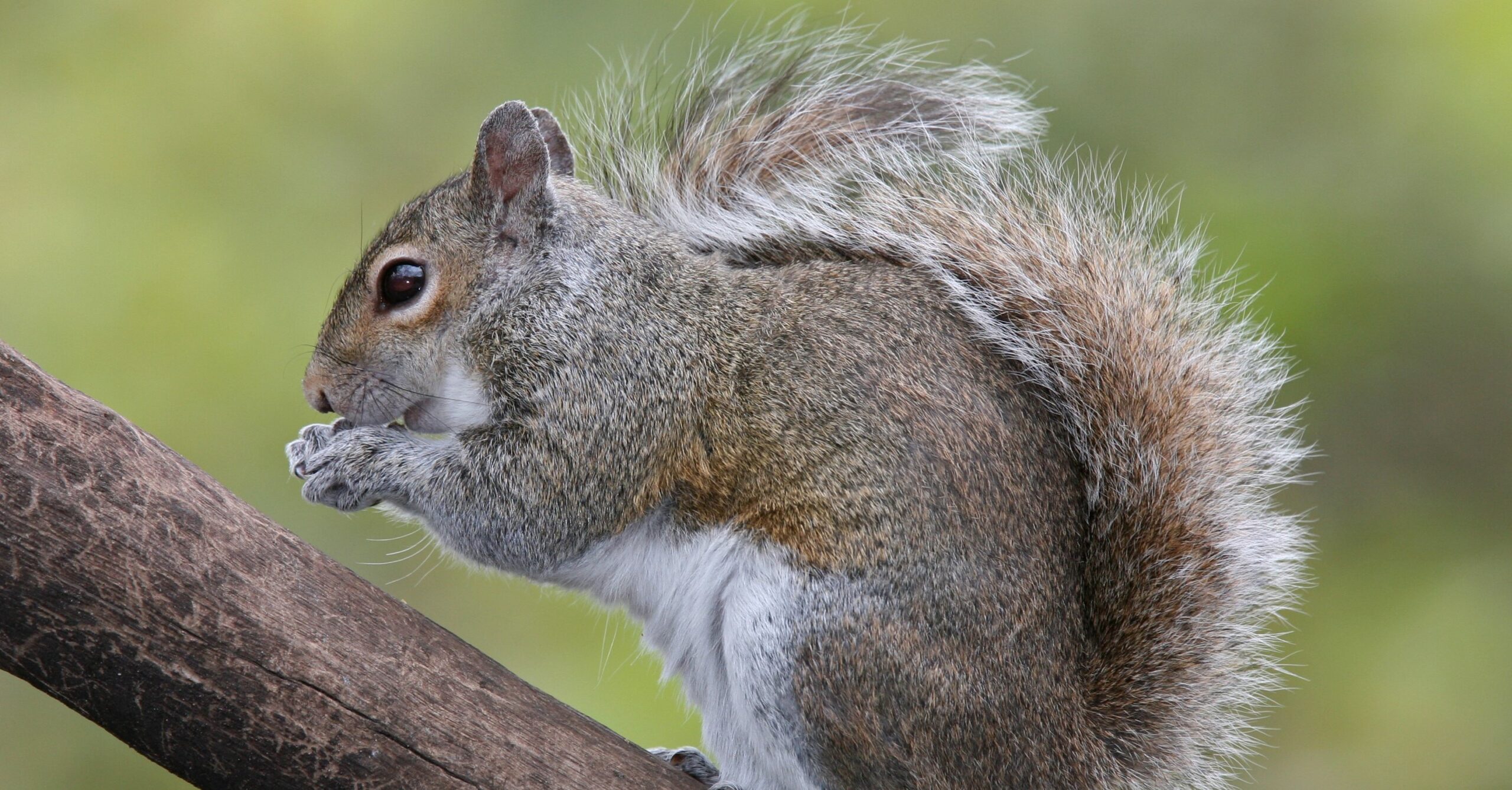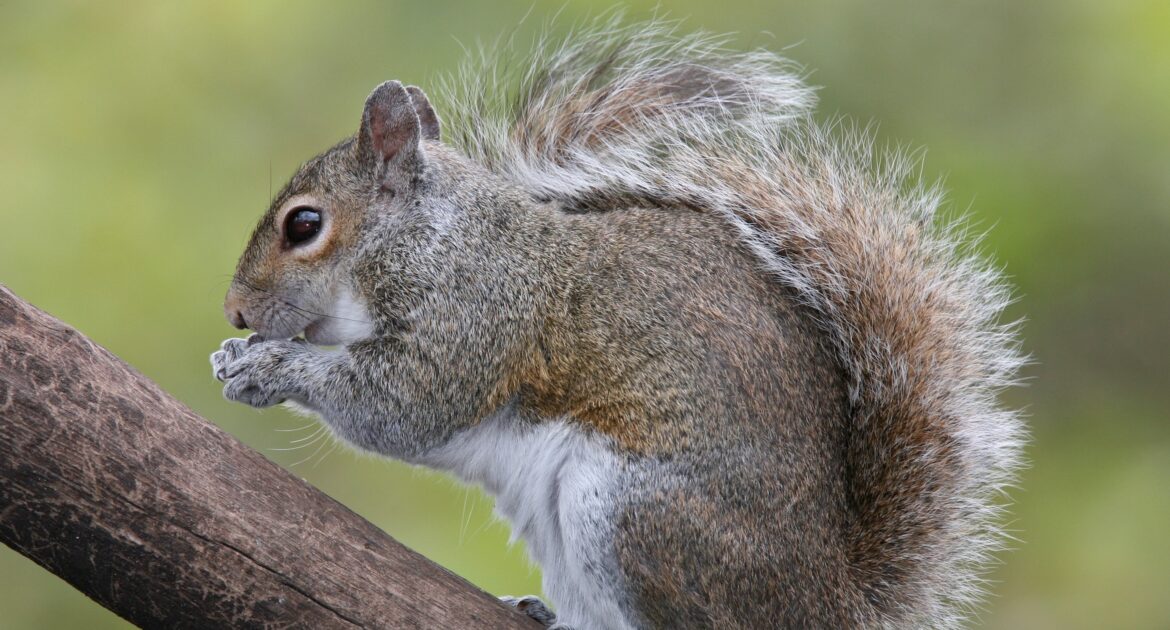Have you noticed grey squirrels darting between trees in your yard or scurrying along fences in your Durham neighbourhood? These energetic animals seem to be everywhere, but their widespread presence leads to an important question. Are grey squirrels an invasive species? The answer isn’t so straightforward, as it depends on where they live and how they interact with the environment.
To understand their impact, we’ll explore their history in Canada, their effect on local ecosystems, and why they thrive in urban areas. Plus, we’ll offer tips to help you prevent these furry intruders from causing damage to your home, all while emphasizing humane and ethical wildlife management.
Grey Squirrels in Canada: Native or Not?
The status of grey squirrels as native or invasive depends on where they are in Canada:
Native Regions: Grey squirrels naturally belong to provinces like Ontario, Quebec, New Brunswick, Manitoba, and parts of Saskatchewan. Here, they’ve existed for centuries, playing an important role in the ecosystem.
Non-Native Regions: The story shifts to British Columbia. Grey squirrels were introduced in 1914 and later to Vancouver Island in the 1960s. With no natural predators to control their population, they quickly spread and now dominate urban environments, becoming classified as invasive wildlife in these areas.
Their introduction has caused significant challenges for native plants and animals, particularly through habitat competition with species like red squirrels. This competition for food and nesting spots disrupts the natural balance, creating ripple effects throughout the ecosystem.
The Grey Squirrel’s Impact on Ecosystems
Grey squirrels don’t just inhabit the environment; they actively change it. Here’s how:
- Competition with Native Species: Grey squirrels are larger and more adaptable than native red squirrels, making it hard for red squirrels to compete for food and shelter. Over time, this competition has contributed to the decline of red squirrel populations, though habitat loss remains the primary factor.
- Impact on Forests: Grey squirrels eat seeds from trees, which might seem harmless. However, when too many seeds are consumed, it prevents proper forest regeneration. Over time, this threatens the health of local forests.
- Food Competition: Grey squirrels also compete with birds and other small animals for seeds, nuts, and other vital resources, further disrupting the ecosystem.
It’s clear that grey squirrels can have a serious ecological impact, especially in areas where they didn’t evolve naturally.
Why Grey Squirrels Thrive in Urban Areas
Ever wondered why grey squirrels seem so at home in cities and towns? Here are a few reasons these adaptable animals do so well in urban spaces:
- Flexible Diets: Grey squirrels can eat almost anything, from acorns to birdseed and even leftovers from trash bins. This flexibility allows them to thrive wherever food is abundant, including backyards and parks.
- Few Natural Predators: Cities lack the predators found in wild habitats. With fewer threats around, grey squirrel populations grow rapidly.
- Excellent Nest-Builders: Whether in trees or tucked into attics, grey squirrels are resourceful nesters. They can easily adapt human structures to suit their needs, which sometimes results in costly damage to homes.
This adaptability has cemented their place as a common sight in Canadian cities, but it also brings challenges for homeowners.
Ethical Wildlife Management for Grey Squirrels
When it comes to addressing the grey squirrel impact, ethical wildlife management is key. Straight eradication isn’t a viable or humane solution, as grey squirrels are now part of local ecosystems. Here’s the approach experts recommend:
- Habitat Management: Conservation efforts focus on protecting native species by managing squirrel populations. Planting red squirrel-friendly vegetation, preserving forests, and monitoring tree health can help maintain ecological balance.
- Humane Removal for Homeowners: Squirrels nesting in attics or walls is a common issue. Experts like Skedaddle Humane Wildlife Control use one-way doors to guide them out safely. This prevents injury to the animals while ensuring they don’t return, minimizing human-animal conflict.
By focusing on humane and respectful solutions, we can find a balance that supports both ecological health and residential safety.
Preventing Grey Squirrel Problems at Home
Dealing with invasive wildlife like grey squirrels can be stressful, but there are steps you can take to safeguard your home. Here are a few simple, actionable tips:
- Seal Entry Points: Check for gaps in your roof, vents, and eaves where squirrels might sneak in. Sealing these openings is essential to keeping them out.
- Trim Tree Branches: Ensure tree branches are at least six feet away from your roof to prevent squirrels from leaping onto your home.
- Squirrel-Proof Food Sources: Use bird feeders designed to keep squirrels out, and keep trash bins securely closed to limit easy food access.
- Inspect Regularly: Look for signs of damage, like chewed wires or nesting. Catching these issues early can save you from bigger repair costs later.
By taking these preventative measures, you can reduce the risk of squirrel-related property damage and maintain a safer home.
Why Choose Skedaddle Humane Wildlife Control?
If you’re facing habitat competition on your property or dealing with squirrels taking over your attic, Skedaddle Humane Wildlife Control is here to help. With a focus on humane solutions, our team uses safe removal techniques that protect both your home and the animals. We also assist in identifying and sealing vulnerable areas to keep squirrels from returning.
Our experienced wildlife professionals prioritize ecological balance and offer effective, ethical solutions tailored to your needs. Whether it’s managing the grey squirrel impact or safeguarding your home from invasive wildlife, you can count on us.
Take Action Today
Grey squirrels may be a charming part of Canada’s urban landscape, but their presence can create serious challenges for homeowners and ecosystems alike. If you’re dealing with these bushy-tailed troublemakers, reach out to Skedaddle Humane Wildlife Control in Durham for help.
Contact us today to learn more about our humane removal process or to request a quote. Together, we’ll help you enjoy a squirrel-free home while supporting ecological health.




